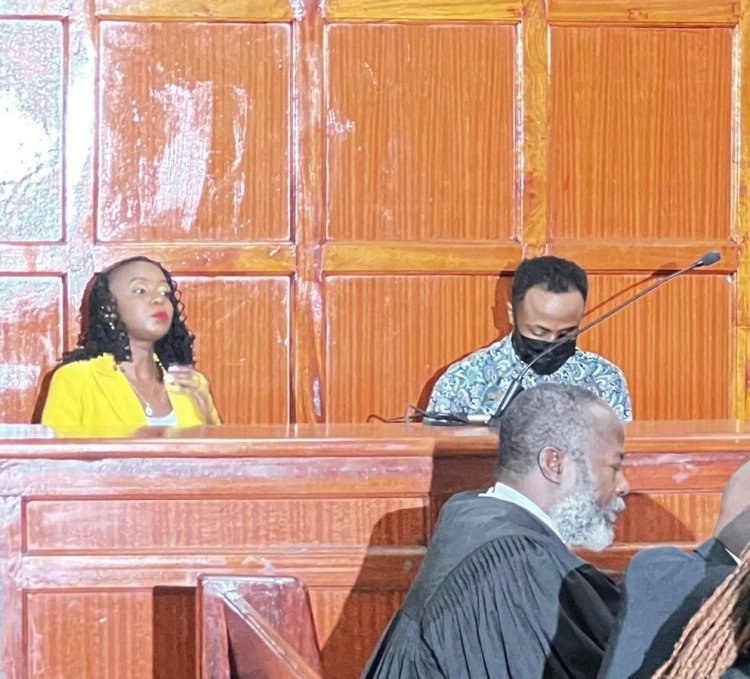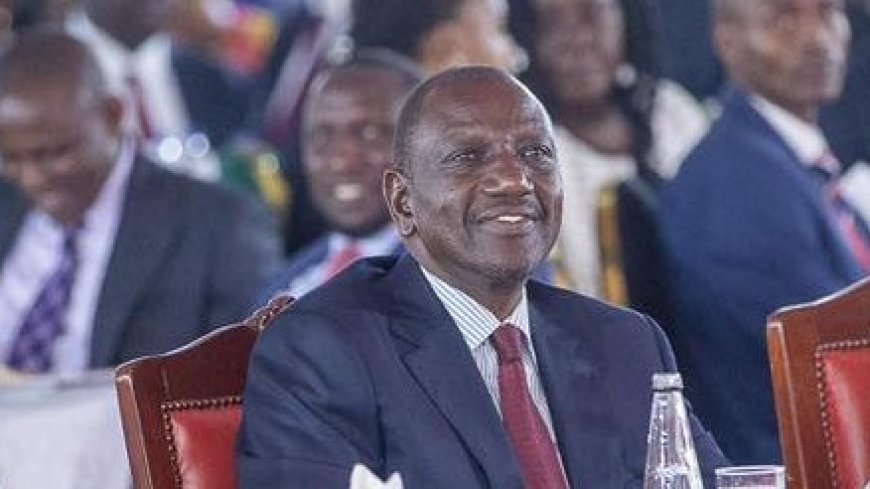FACT CHECK: Was Jowie Irungu Released From Prison?
Kenyans on Tuesday evening, May 27, got wind of reports of Jowie's release from prison, coming more than a year after he was sentenced to death over the murder of businesswoman Monica Kimani.

Joseph Irungu, alias Jowie, has not been released from prison, Viral Tea can authoritatively report.
Kenyans on Tuesday evening, May 27, got wind of reports of Jowie's release from prison, coming more than a year after he was sentenced to death over the murder of businesswoman Monica Kimani.
The reports stemmed from a Kenya Gazette notice, dated Friday, May 23, which showed that President William Ruto released 57 inmates in adherence to his Constitutional right of prerogative of mercy.
Among those pardoned by the Head of State was an individual, Joseph Irungu Maina. Many believed that Ruto released Monica's killer, given that his first two names were Joseph Irungu, but we established that this is not the case.

Former Citizen TV Anchor Jacque Maribe and Jowie Irungu in court on Friday, February 9, 2024. /ALINUR MOHAMED
Jowie's real name, per our spot checks, is Joseph Kuria Irungu, not Joseph Irungu Maina. The latter, listed as prisoner number 22, was sentenced 10 years ago in 2015, per the gazette notice.
Jowie, on the other hand was sentenced on March 13, 2024. On April 17, 2024, he filed a petition challenging the High Court ruling, urging the High Court to declare that Section 379(4) of the Criminal Procedure Code is unconstitutional, null and void to the extent that it denies persons sentenced to death the right to bail pending appeal.
Backing this up, Dennis Itumbi, the Digital Strategist and Head of Creative Economy at the Office of the President, quickly shut down the accusations, calling the social media claims fake.
He also took aim at certain online users, accusing them of trying to mislead the public with false info on such a serious issue. Itumbi also called out a prominent local media house for misreporting on the matter.
What Are The Circumstances For a Presidential Pardon in Kenya?
In Kenya, a presidential pardon is a constitutional power granted to the President under Article 133 of the 2010 Constitution. This power is exercised in consultation with the Advisory Committee on the Power of Mercy.
The circumstances under which a presidential pardon may be issued are tied to considerations of justice, public interest, and humanitarian grounds. It is not an arbitrary decision — there's a formal process in place.
A prisoner, their representative, or any concerned party can petition the Advisory Committee for mercy. This committee, appointed by the President, reviews applications and makes recommendations based on factors like the nature of the offence, behaviour during incarceration, time served, and evidence of rehabilitation. The Committee may also consider age, health conditions, or cases where the sentence appears excessive or unjust due to new evidence or evolving legal standards.
Presidential pardon can take different forms: a full pardon (releasing the person and expunging the criminal record), a conditional pardon (release with certain terms), a commutation (reducing the sentence), or a respite (temporary delay or suspension of punishment). These options give the President flexibility in tailoring mercy to each case.
However, the power is not limitless. It is not meant to undermine the judiciary or reward political loyalty. If misused, it risks eroding public trust in the rule of law.
That said, pardons are often issued around national holidays like Jamhuri Day or Madaraka Day as acts of goodwill and reconciliation, especially for non-violent offenders or those who have shown genuine reform.
So, while the President holds this powerful tool, it is framed within a legal structure meant to balance compassion with justice, and it reflects Kenya’s broader commitment to human rights and rehabilitation, not just punishment.







